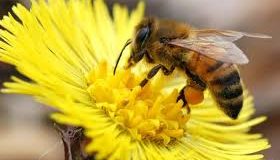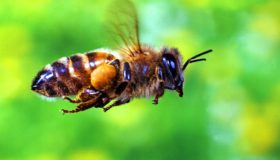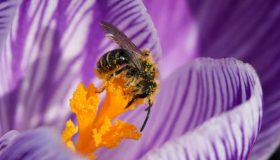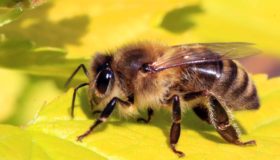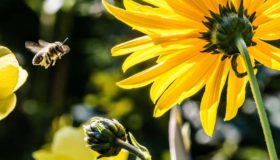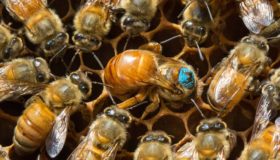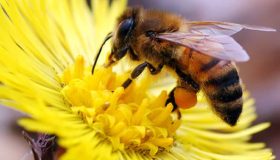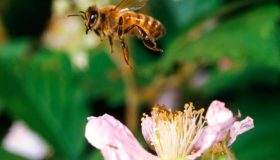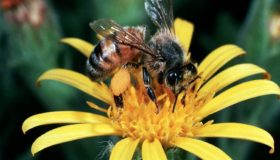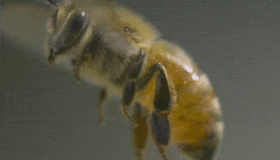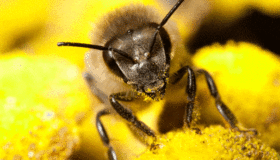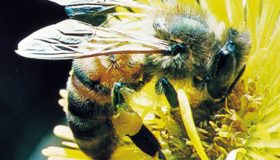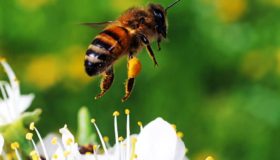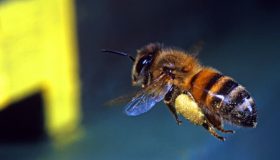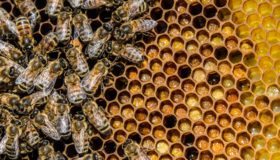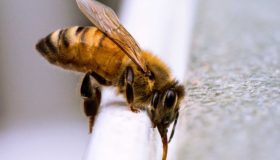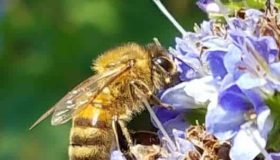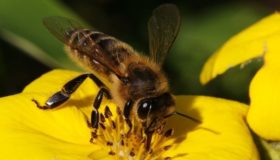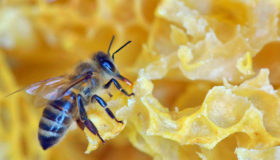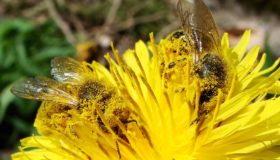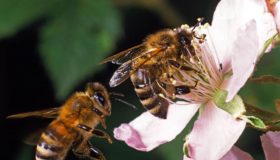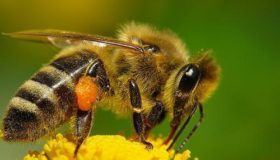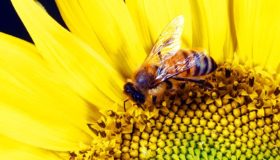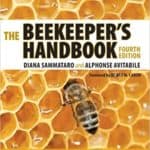This class is full. It is a replacement class for students who remained enrolled in the March 2020 class which was postponed due to Covid19.
To verify whether you are enrolled, simply login and check the roster listed further down this page.
MCBA's next Beekeeping 101 Class will be presented Feb/March, 2021. Registration will open December, 2020. Please watch our homepage and listserv for updates.
REVISED COURSE FORMAT
- WHAT:
- LIVE, ONLINE Beginner Beekeeping Class
- FORMAT:
- Approx. 18 hours of Zoom classroom presentations, presented on 6 consecutive Thursdays, PLUS an optional in-person instruction in an outdoor apiary (Max 10 students per in-person session). Face masks and bee veils are mandatory.
- WHEN:
- Zoom 7pm-10pm Thursday 10/15, 10/22, 10/29, 11/5, 11/12, 11/19
- The in-person Apiary Session requires advance signup to reserve your spot. Enrolled students can scroll down to signup. (you will only see the signup link if you are a current MCBA member, logged in and enrolled in the class)
- WHERE:
- On-Line via Zoom
- In-Person Apiary Session at Brookside Nature Center (click for directions) 1400 Glenallan Avenue, Wheaton, MD 20902 (location subject to change)
- $90 TUITION INCLUDES:
- 1 student enrollment in the course (must be an MCBA member in good standing - but that's just $21 for a whole year! Join HERE)
- 1 copy of "The Beekeepers Handbook" by Diana Sammataro and Alphonse Avitabile ($25 value)
- 1 note pad and MCBA folder
- 1 hive tool
WANT TO BE A BEEKEEPER?
You’ll be taking on the earnest responsibility of caring for 10’s of thousands of honey bees. Beekeepers must monitor their bees’ wellbeing. They make sure bees have the things the colony needs to thrive (including food, water, shelter, and a viable bee community), and that the colony isn't suffering from things that cause honey bees harm or death -- (including parasites, diseases, and invaders that want to rob them).
IT IS A YEAR ROUND COMMITMENT.
SPRING requires frequent inspections of the inside of the hive. You’ll check if they need food, and you’ll help the colony if it gets too big or too small. Spring is the only time in our area when bees make excess honey, so you need to be ready to enlarge their hive as they run out of storage space. However, the number one thing to do in early spring is treat for mites
SUMMER requires inspections every two or three weeks. You won't harvest honey your first year, but keep feeding your bees. The food they store now has to last them till next spring. In our area, very few blossoms produce appreciable nectar after June. In late July / early August it is important to treat for mites again, because the mite population will be peaking. Treating for mites ensures the bees are strong and healthy as they start producing the generation of bees that will tough-out the winter. No treatment successfully kills all the mites, and new mites arrive all the time, so treating is an ongoing effort.
FALL is your last chance to ensure the hive is arranged and stocked to survive winter.
WINTER doesn’t require regular inspections - opening the hive chills the baby bees. On a warmish day late in winter you might sneak a peek to see if they have food. Mostly, use winter to plan for the busy spring, and learn new things about caring for bees.
WHERE DO YOU START?
The class teaches the beginner beekeeping skills needed to establish, maintain and protect a honey bee colony.
The only prerequisites are being an MCBA member and having an interest in learning about beekeeping. There is a lot to learn, but remember: bees have trained beekeepers for thousands of years, and they have gotten good at it.
Textbook is included with the course.
The Beekeeper’s Handbook (4th Edition)
Diana Sammataro and Alphonse Avitabile
.
You are not currently logged in. Please login and return to this page to see the class enrollment form. Thanks!
Syllabus for "Beekeeping Class for Beginners"
When a syllabus is available, it will appear here.
Resources
Additional Reading
- Our Website! www.MontgomeryCountyBeekeepers.com
- Backyard Beekeeper – author Kim Flottum
- Top-Bar Hive Beekeeping: Wisdom and Pleasure Combined – author Wyatt A. Mangum
Bee Magazines
Beekeeper Equipment Suppliers
- Maryland Honey Company (Gaithersburg)
- Mann Lake (Mail order)
- Kelley Beekeeping (Mail order)
- Dadant (Mail order)
- BetterBee (Mail order)

